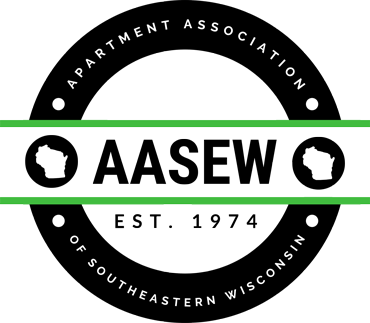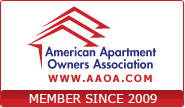Tristan is the Executive Vice President and shareholder with the law firm of Petrie+Pettit and focuses his practice in the area of landlord-tenant law representing landlords and property management companies throughout Wisconsin.
Call us: (414) 276-2850
Landlords Should Create and Implement A Reasonable Accommodation Request Process
Posted by Tristan R. Pettit, Esq. in Reasonable Accommodations, Assistance Animals, Companion/Comfort Animals / Comments
With more and more tenants making reasonable accommodation requests to keep assistance animals in their apartments, it is important for landlords to create a policy and process to handle such requests when they arise.
As background, a reasonable accommodation request is a request from a person with a disability to a landlord asking that the landlord modify his/her policies, practices or procedures to accommodate the disabled person so that s/he can enjoy their housing to the same extent as a non-disabled person.
To learn the basics of reasonable accommodation requests, please refer to my prior blog post entitled “A Landlord's Primer on Reasonable Accommodations."
To learn more about reasonable accommodation requests involving assistance animals, please refer to my prior blog post entitled “So Let's Talk About . . . Companion/Comfort Animals."
The most common reasonable accommodation request these days is to be able to keep an assistance animal. The term assistance animal is a general term and includes, but is not limited to, service animals, emotional support animals, companion animals, comfort animals, and therapy animals. Regardless of what the tenant calls the animal, if it is prescribed by a health care provider it may be the basis for a reasonable accommodation request.
Oftentimes a tenant will show up at the rental office with a letter from their health care provider that says that they need an animal to assist with their disability. While the letter may be sufficient to verify the reasonable accommodation request, it is recommended that landlords create and implement a process to deal with reasonable accommodation requests to ensure that the landlord is treating everyone the same.
At a minimum, a landlord's Reasonable Accommodation Request process should include the use of the following documents:
1. Reasonable Accommodation Request form
2. Reasonable Accommodation Verification form
3. Assistance Animal Agreement
Please remember that if the tenant's disability is open and obvious and the need for the accommodation is also apparent, then a landlord does not need to follow the reasonable accommodation process, nor should they.
Reasonable Accomodation Request form
When a tenant makes a reasonable accommodation request, the landlord should provide the tenant with a Reasonable Accommodation Request form to complete. Essentially this form asks the tenant to confirm the following: (1) that they are disabled, (2) that the accommodation being requested is necessary for the tenant to enjoy their housing, and (3) that there is an identifiable relationship, or nexus, between their disability and their accommodation request. The form should allow space for the tenant to specify their accommodation request.
Once the request form is returned to the landlord, the landlord should review it to confirm that it is accurate and complete.
If the tenant does not answer “yes" to all three questions mentioned above, then the landlord may not have to grant the reasonable accommodation request. If this occurs, further investigation and guidance will be necessary.
Please be aware that a reasonable accommodation request can be made orally or in writing and a landlord must still consider, evaluate and respond to the request even if the tenant does not use the landlord's Reasonable Accommodation Request form.
Reasonable Accommodation Verification form
Next, the landlord should meet with the tenant and explain that the next step is to verify their request with their health care provider. The landlord should ask the tenant for the contact information for his or her health care provider and the landlord should then mail, fax or email a Reasonable Accommodation Verification form to the health care provider.
A Reasonable Accommodation Verification form should allow space for the landlord to both identify the tenant by name and for the landlord to specify the tenant's requested reasonable accommodation. A verification form should also ask the health care provider if the above-mentioned three questions are applicable to their patient.
It is necessary for a landlord to obtain the applicant or tenant's permission to contact and verify the information with their health care provider,therefore, the verification form should also include language giving the landlord permission to do so.
The form should also provide space for the health care provider to provide his or her contact information, signature, and the date.
Once the health care provider returns the verification form, the landlord should review it for completeness. The health care provider should have answered the above-mentioned three questions with a “yes." If not, the landlord may not have to grant the reasonable accommodation request and further clarification and guidance will be necessary.
It is important to remember that the verification of a disability and the need for a reasonable accommodation may come from a doctor, but it does not have to come from a doctor. Verification can also be made by other medical professionals such as a therapist, physician's assistant, or nurse. Verification may also come from a counselor, social worker, peer support group, a non-medical service agency or a reliable third-party who is in a position to know about the tenant's disability.
Confirm That The Specific Assistance Animal Does Not Pose A Danger
Prior to granting the tenant's reasonable accommodation request, a landlord should ask the tenant if the assistance animal has ever: (1) bitten or injured another person, (2) damaged the property or possessions of another, and/or (3) has a propensity or predisposition to bite or injure.
If the tenant answers “yes" to any of these questions, the landlord should inquire further. If the tenant's assistance animal has caused harm or damage in the past, a landlord may be entitled to reject the reasonable accommodation request for that specific animal, unless the danger can be eliminated by another reasonable accommodation. Further clarification and guidance may be necessary.
It is important to remember that a landlord may not reject a tenant's reasonable accommodation request for an assistance animal because the landlord believes that the breed of the assistance animal is dangerous. The danger has to be specific to the animal.
Assistance Animal Agreement
Assuming the Reasonable Accommodation Request and Verification forms have been returned and adequately meet and verify the need for the accommodation, the next step is to meet with the tenant and have them complete an Assistance Animal Agreement.
A landlord should not use a Pet Agreement for an assistance animal. An assistance animal is not a pet; rather it is an “assistive device" similar to a wheelchair or prescription medicine. Additionally, unlike with a pet, a landlord cannot charge a fee or deposit for an assistance animal.
Nonetheless, a landlord may still require the owner of an assistance animal to follow certain rules with regard to their assistance animal. The purpose of the Assistance Animal Agreement is to set forth those rules. Examples of acceptable rules include, but are not limited to: (1) the tenant will clean up after the animal, (2) the tenant will comply with all municipal and county ordinances and state laws regarding the animal, (3) the animal will not be allowed to cause undue noise and/or disrupt the quiet use and enjoyment of the premises, (4) the tenant will be responsible for the animal's behavior at all times, (5) the tenant agrees not to leave the animal unattended in common areas or on the grounds at any time.
An Assistance Animal Agreement should also require that the tenant provide the name and contact information of a person who will be responsible for the assistance animal should the tenant become sick, incapacitated, or die. As always, the tenant should sign and date the Agreement.
While the issue of reasonable accommodation requests and assistance animals may seem overwhelming to landlords, I do not foresee this issue going away. If anything, I believe that landlords will be receiving more requests for assistance animals and the requests will be for more exotic assistance animals (can you say ferret, sugar glider, guinea pigs, iguana, tarantula, pot-bellied pig etc.) and for multiple assistance animals (yes it is true, I have already had client's that have received requests from tenants for 3 and 4 assistance animals). I have even had a client receive a reasonable accommodation request for an assistance "person." To help streamline the process, reduce stress, and most importantly to make sure all tenants are being treated the same, landlords should create and implement a Reasonable Accommodation Request process.
For those of you that do not want to reinvent the wheel, I have drafted Reasonable Accommodation Request forms, Verification forms, and Assistance Animal Agreements which are available at Wisconsin Legal Blank Company, Inc.




